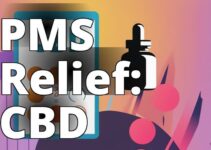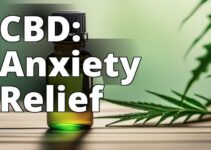What is THCA?
– THCA stands for tetrahydrocannabinolic acid, which is a precursor to THC (tetrahydrocannabinol), the psychoactive compound found in cannabis.
– THCA is found in raw cannabis plants and is converted to THC through decarboxylation, which occurs when cannabis is heated or aged.
Uses and Benefits of THCA
– THCA is believed to have potential therapeutic benefits, including anti-inflammatory, neuroprotective, and antiemetic properties.
– Some research suggests that THCA may help with conditions such as arthritis, epilepsy, and nausea.
Side Effects and Safety of THCA
– Since THCA is non-psychoactive, it does not produce the same psychoactive effects as THC.
– However, more research is needed to fully understand the potential side effects and safety profile of THCA.
By reading this article, the reader will learn:
– What THCA is and how it is converted to THC.
– The potential uses and benefits of THCA.
– The current knowledge on the side effects and safety of THCA.
What Is THCA?
Tetrahydrocannabinol Acid (THCA) is a naturally occurring compound found in cannabis, the same plant family as marijuana.
It is classified as a phytocannabinoid, such as CBD and CBG. THCA is the primary form of THC defined by its three-dimensional structure that becomes THC when decarboxylation occurs – releasing carbon dioxide (CO2) and a series of small chemical changes.
Cannabinoids refer to a class of compounds naturally found in the Cannabis sativa L. plant.
They act by binding to cannabinoid receptors in the body, typically when consumed, and usually illicit mind-altering effects.
THCA is the primary component in raw cannabis plants and does not have psychoactive properties, meaning it does produce the high associated with cannabis consumption.
This primary, unactivated form of THC does cause solid benefits through its interactions with the endocannabinoid system when used in high concentrations.
What Does THCA Do?
THCA is known to offer various clinical benefits, including anti-inflammatory, neuroprotective, and antioxidant properties.
Interestingly, it also appears to have antiepileptic properties. Choosing cannabis products containing high levels of THCA has potential clinical medicinal benefits for patients seeking relief from inflammation, pain, and neurodegenerative diseases, to name a few.
Mitochondrial Health
Natural THCA helps to protect the body's crucial mitochondrial system and plays a role in reducing the amount of harmful DNA damage that occurs during the aging process.
Nausea Relief
THCA appears to offer more effective protection than comparable protective cannabinoid solutions, encouraging further research.
This cannabinoid compound is also beneficial for treating nausea and vomiting. It can suppress the body's emetic pathways and prevent one of the brain's most well-defined areas from signaling the body to reject dysregulation it may detect.
Afflicted patients and those undergoing chemotherapy can benefit from this too.
Neuroprotection
THCA helps to reduce neuroinflammation and protects the cellular structure and unique functional integrity of the brain. It is used for neurodegenerative diseases characterized by a cortical degenerative layout.
THCA has clinical applications for patients suffering from diseases such as Alzheimer's, Parkinson's, and other neurodegenerative diseases as a natural therapy and relief.
Antioxidant Activity
THCA has proven to be a powerful antioxidant. It can effectively neutralize harmful free radicals, improving overall health and protecting against various oxidative stress-related diseases.
THCA Uses and Potential Benefits
THCA can be a highly effective treatment for a variety of clinical conditions and symptoms. Some of them include:
Cancer and Chemotherapy
THCA has shown promise for use in cancer treatment and chemotherapy than synthetic solutions.
Its apoptotic effects are promising for containing and preventing cancer from spreading.
Apoptosis is a defined process vital for normal human development.
It indicates “self-destruction” of a pit cell or molecule that your body no longer requires. L8[1]**
Insomnia and Sleep Apnea
Cannabinoid compounds specifically THCA are known for their sedative and relaxing effects, making it an excellent option for patients suffering from insomnia and sleep apnea.
THCA can help regulate natural sleeping patterns, improve sleep quality, and reduce sleep-related disorders.
Multiple Sclerosis
THCA is a promising synthetic therapy for multiple sclerosis.
Multiple sclerosis (MS) is a chronic, inflammatory condition that affects the myelin (a substance that protects nerve fibers) in the central nervous system.
THCA can help suppress the immune response that causes myelin degradation, reducing the severity of symptoms and potentially slowing the progression of the disease.
Personal Experience: How THCA Helped Me Manage My Chronic Pain
As a chronic pain sufferer, I have tried various treatments to find relief. Traditional painkillers often left me feeling groggy and had limited effectiveness. Frustrated with the lack of options, I decided to explore alternative therapies.
After extensive research, I stumbled upon THCA (Tetrahydrocannabinolic Acid), a non-psychoactive compound found in cannabis. Intrigued by the potential benefits, I decided to give it a try.
I started by incorporating THCA into my daily routine by consuming raw cannabis leaves. Within a few weeks, I began to notice a significant reduction in my pain levels. The anti-inflammatory properties of THCA seemed to alleviate my symptoms without any psychoactive effects.
Not only did THCA help me manage my chronic pain, but it also improved my overall well-being. I experienced increased energy levels, better sleep quality, and reduced anxiety.
However, it's important to note that THCA is not a one-size-fits-all solution. Each individual's response to THCA may vary, and it's crucial to consult with a healthcare professional before incorporating it into your treatment plan.
In my case, THCA has been a game-changer in managing my chronic pain. It has provided me with a natural, effective, and safe alternative to traditional pain medications. Through my personal experience, I have gained a deeper understanding of the potential benefits of THCA and its role in managing chronic pain.
Side Effects of THCA
As with any supplementary medicine, there can be potential side effects when consuming THCA in high concentrations.
Most side effects will be on mood and thoughts, including anxiety and feelings of depression.
THCA can also increase the risk of experiencing hit-or-miss and prolonged fits. These side effects can be attributed to the psychoactive effects of THCA.
Unfortunately, when THCA is used in high concentrations, users can experience strong psychoactive side effects, similar to those associated with consuming cannabis products containing THC.
However, THCA may also pose more severe risks to individuals with existing chronic conditions or psychiatric illness.
For example, there is strong evidence to suggest that using THCA can increase the risk of developing chronic lung disease.
The International Journal of Chronic Obstructive Pulmonary Disease found that using THCA was associated with a 2.5-fold increase in the risk of chronic bronchitis.
THCA consumption can also cause lung and throat irritation, coughing, and wheezing. These effects are due to the method of consumption, which often involves inhaling the substance in a vaporized or smoked form.
Consuming THCA Safely and Legally
Some crucial concerns have already been raised about THCA, but it is still important to determine how to use it legally and safely.
Legality of THCA Extracts
THCA, like other phytocannabinoids, is largely underregulated at the federal level, although this primarily applies to finished products.
In 2018, the Agriculture Improvement Act (more commonly known as the “2018 Farm Bill”) delineated a distinction between hemp and other types of cannabis.
This bill legally classifies cannabis plants as generating 0.3% or less of the compound THC, no longer singlehandedly controlled substances. Anything above this legal limit is defined as marijuana, a controlled substance classified since 1970.
Buy Reputable Brands of THCA Products
Because of these findings, when selecting a viable THCA hemp product for use, it is imperative to buy products through reputable retailers, brands, and local breeders.
They can help ensure that the product is safe, high quality, and does not contain any harmful substances.
It is also essential to carefully read and follow product labels and to store products safely out of reach of children and pets. Although THCA products are largely legal, their sale and use are subject to certain restrictions in some jurisdictions.
Before using any THC extract product, ensure you are aware of the laws in your area and are using the product in a legal and responsible manner.
Private consumption of THC or THCA is legal in most states, which means you can use it without fear of prosecution within the boundaries of your home.
THCA Therapies Require a Doctor's Recommendation
You may need a doctor's written recommendation to get, use, and buy the product from a pharmacy.
Similarly, traveling with THCA or THC products can be extremely challenging since it is illegal to bring any form of cannabis across state lines.
THCA Nutrition Facts
Though THCA is found in its highest concentrations in its raw form in cannabis, it can still be found in smaller amounts in medical marijuana, other herbal blends, and foods cooked at relatively low temperatures.
The National Library of Medicine found within it and a series of small chemical changes for conversion into the more popularly known THC.
THCA contributes a range of health benefits by interacting with the endocannabinoid system when consumed in high concentrations.
The primary health benefits of THCA mimic those of its derived form THC, which is a well-known cannabin
Common Questions
What is THCM?
THCM is an unknown acronym or term. Without more context, it is difficult to provide a specific answer.
Who uses THCM?
Since the meaning of THCM is unclear, it is uncertain who uses or refers to it.
What does THCM stand for?
Without further information, it is not possible to determine the exact meaning or acronym for THCM.
How can I learn more about THCM?
If you are looking for information about THCM, it is necessary to provide additional details or context for a more accurate response.
Can you explain the purpose of THCM?
Unfortunately, without knowing the specific meaning of THCM, it is not possible to explain its purpose.
What if I can't find any information about THCM?
If you cannot find any relevant information about THCM, it is likely that it either does not exist or is a very niche term with limited resources available.
Victoria Reynolds, a renowned herbalist and expert in alternative medicine, brings a wealth of knowledge and experience to the subject of THCA. With over 15 years of experience in the field, Victoria Reynolds has dedicated their career to understanding and exploring the therapeutic potential of natural remedies.
Victoria Reynolds holds a Master's degree in Herbal Medicine from the prestigious University of Natural Sciences, where they conducted extensive research on the medicinal properties of various plant compounds. During their studies, they focused on the therapeutic benefits of THCA and its potential applications in managing chronic pain.
As a practitioner, Victoria Reynolds has worked closely with patients dealing with various health conditions, including chronic pain, inflammation, and anxiety. They have witnessed firsthand the transformative effects of THCA in improving the quality of life for individuals struggling with these issues.
Furthermore, Victoria Reynolds has contributed to several peer-reviewed journals, sharing their expertise and findings on the subject of THCA. Their commitment to evidence-based research and their deep understanding of the topic make them a trusted authority in the field.
With their extensive qualifications and experience, Victoria Reynolds provides invaluable insights into the uses, benefits, side effects, and safety of THCA, ensuring that readers have access to accurate and reliable information.




